Abstract
Attitudes and behaviors of physicians toward their impaired colleagues often affect whether the latter seek treatment. Negative responses include (1) silence, usually based on anxiety, ignorance and pessimism; (2) tentative responses based on stereotyped assumptions or distraction by organic problems; (3) judgmental responses that may result in mutual avoidance, and (4) permissive responses that encourage continued use of alcohol or other drugs. Positive responses include (1) confrontation in a concerned, constructive manner as early as possible; (2) assistance to the impaired colleague in obtaining treatment, and (3) education and information sharing to increase awareness of potential and real problems.
Educational programs can help physicians develop more positive attitudes toward both impaired colleagues and impaired patients. The emphasis is on active participation. The goals of these programs should include optimism about therapy, using structured treatment approaches that include paraprofessionals and formerly impaired physicians on the treatment team, and the development of confrontational skills on the part of each physician.
Full text
PDF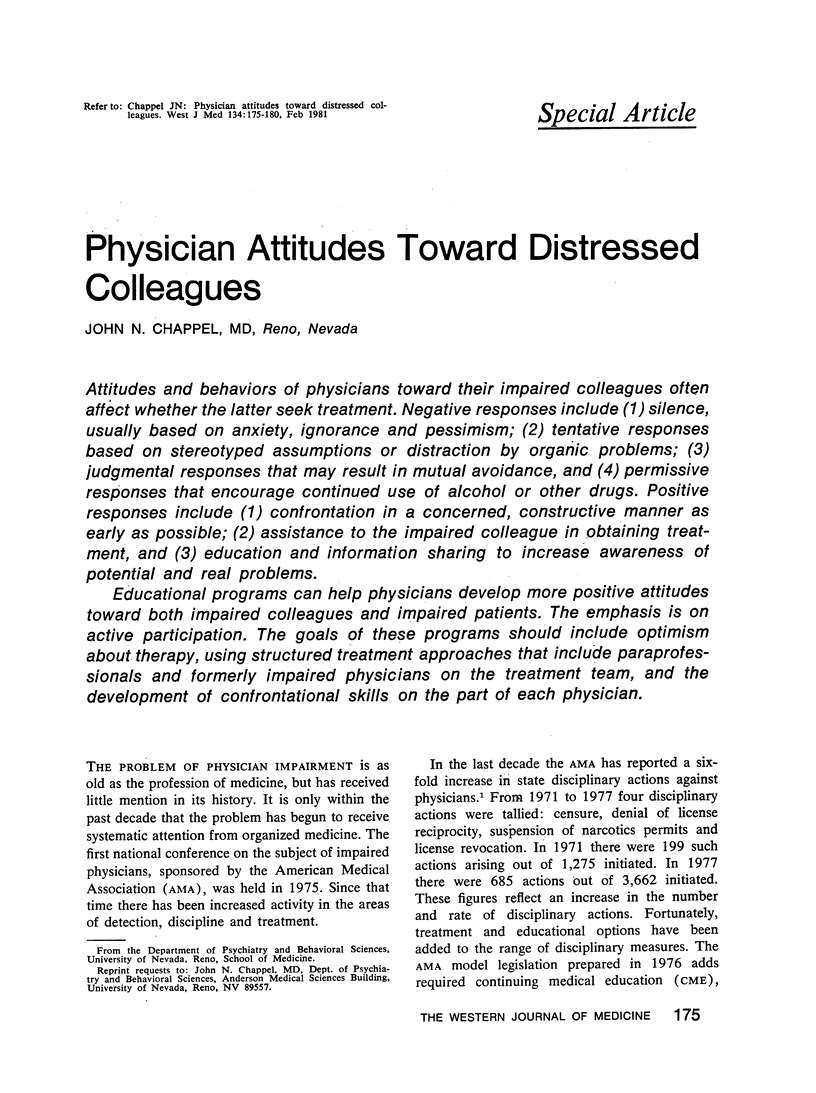
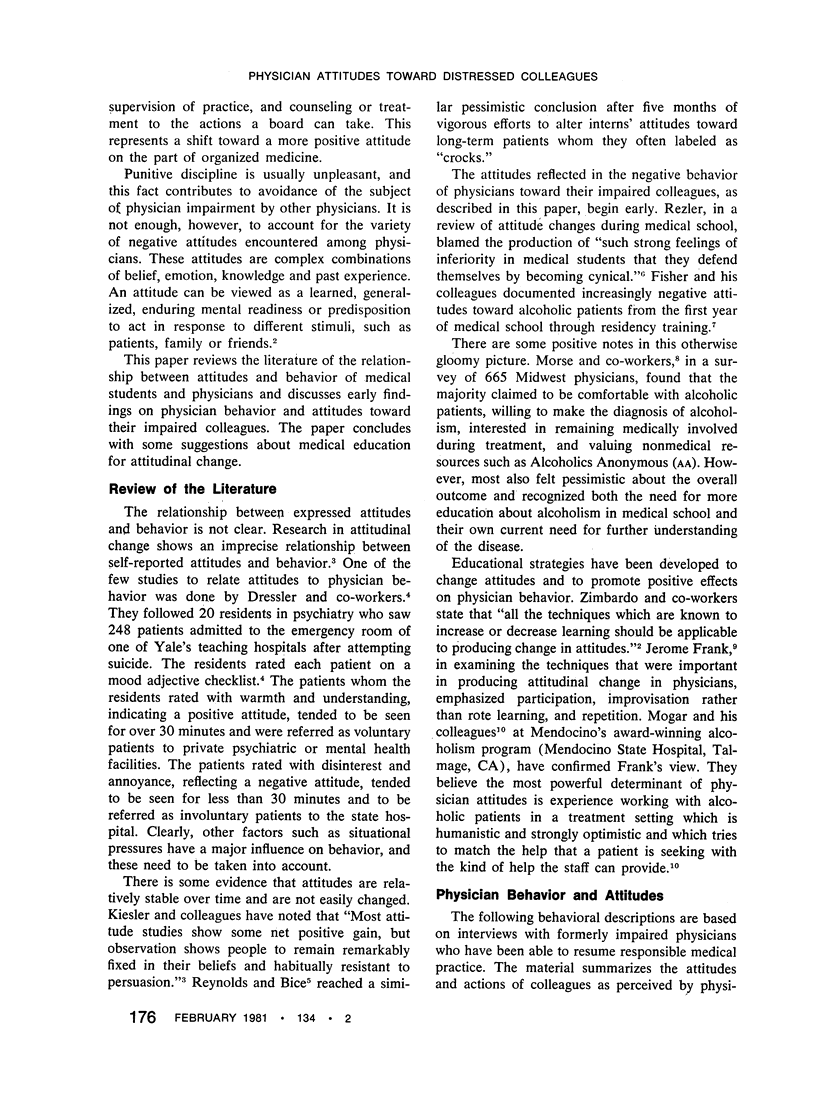
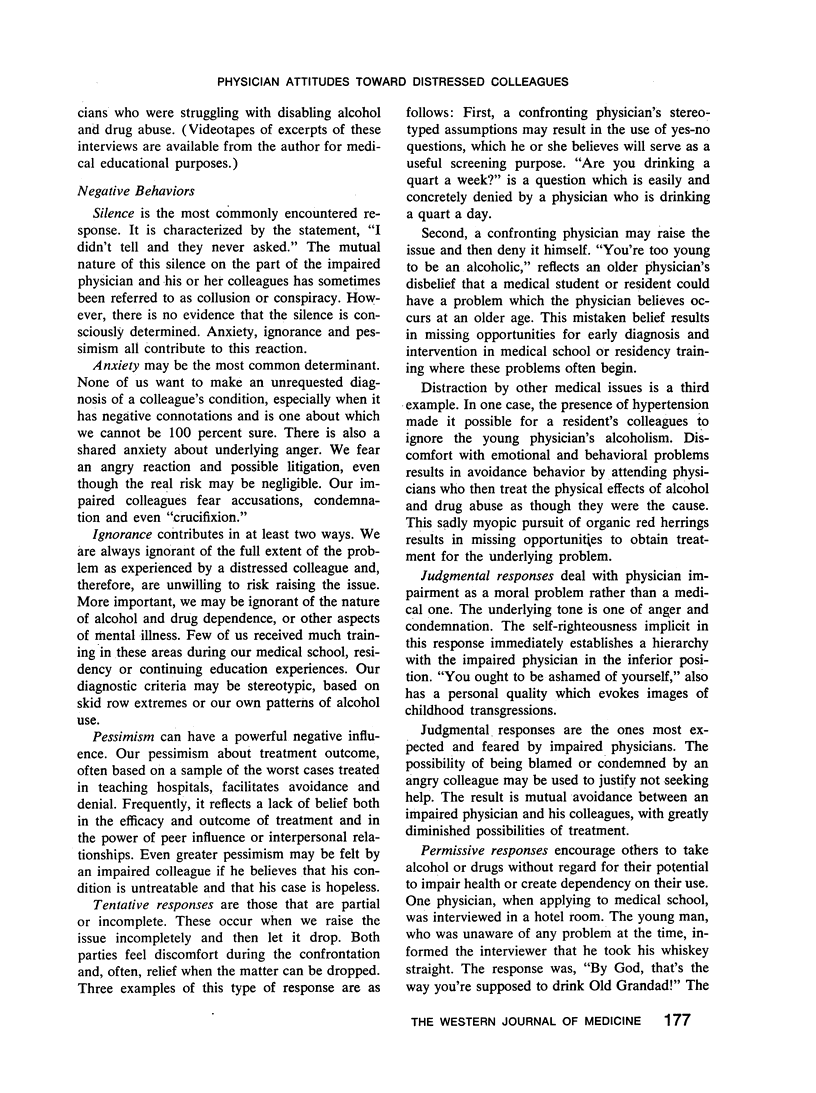
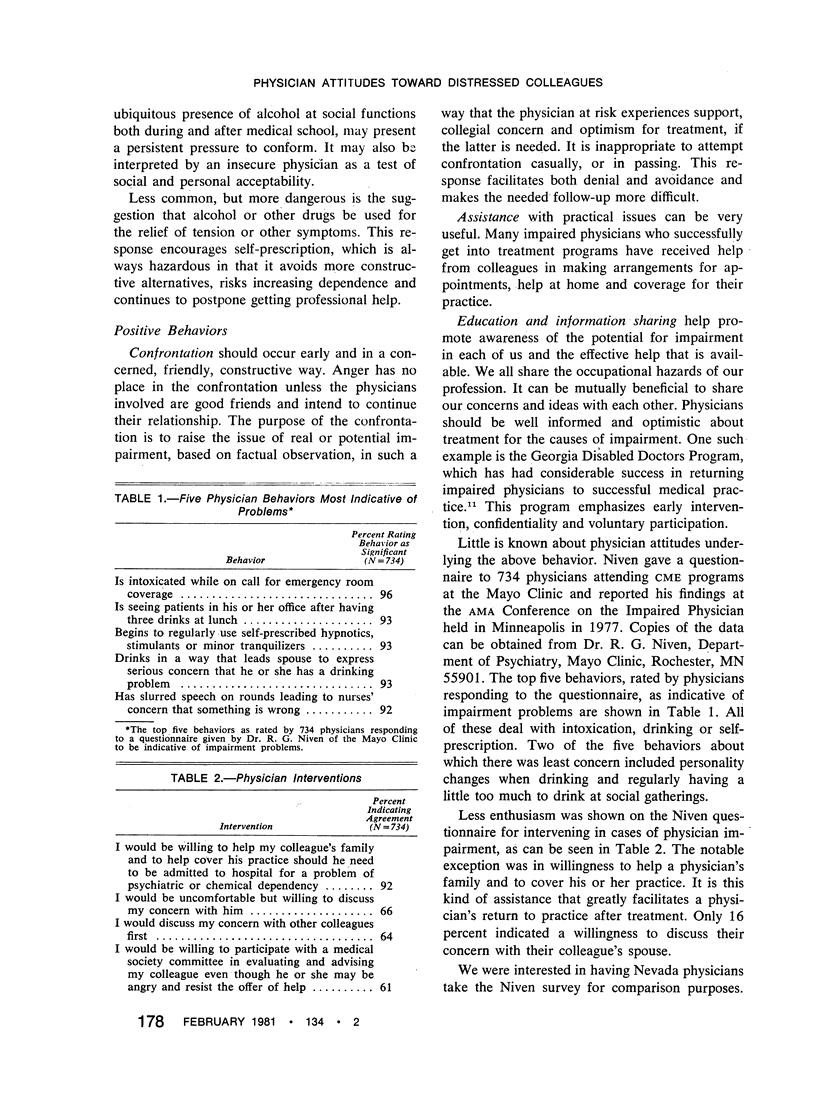
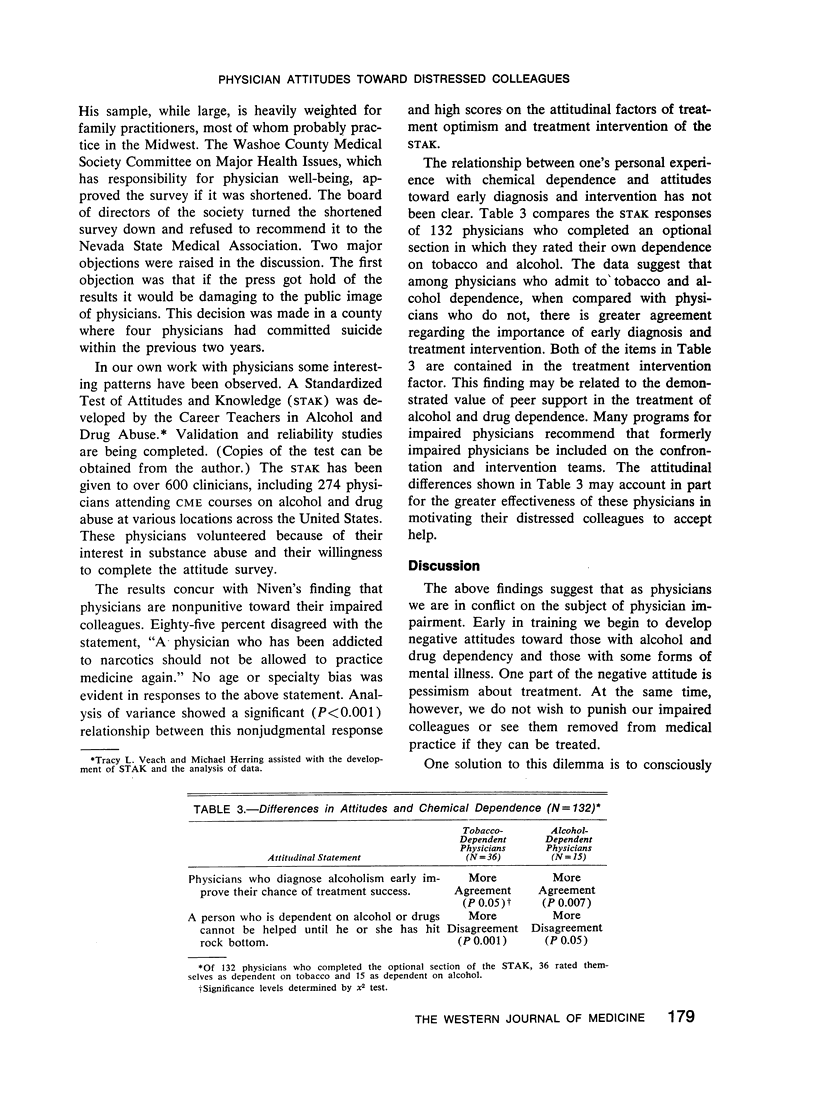
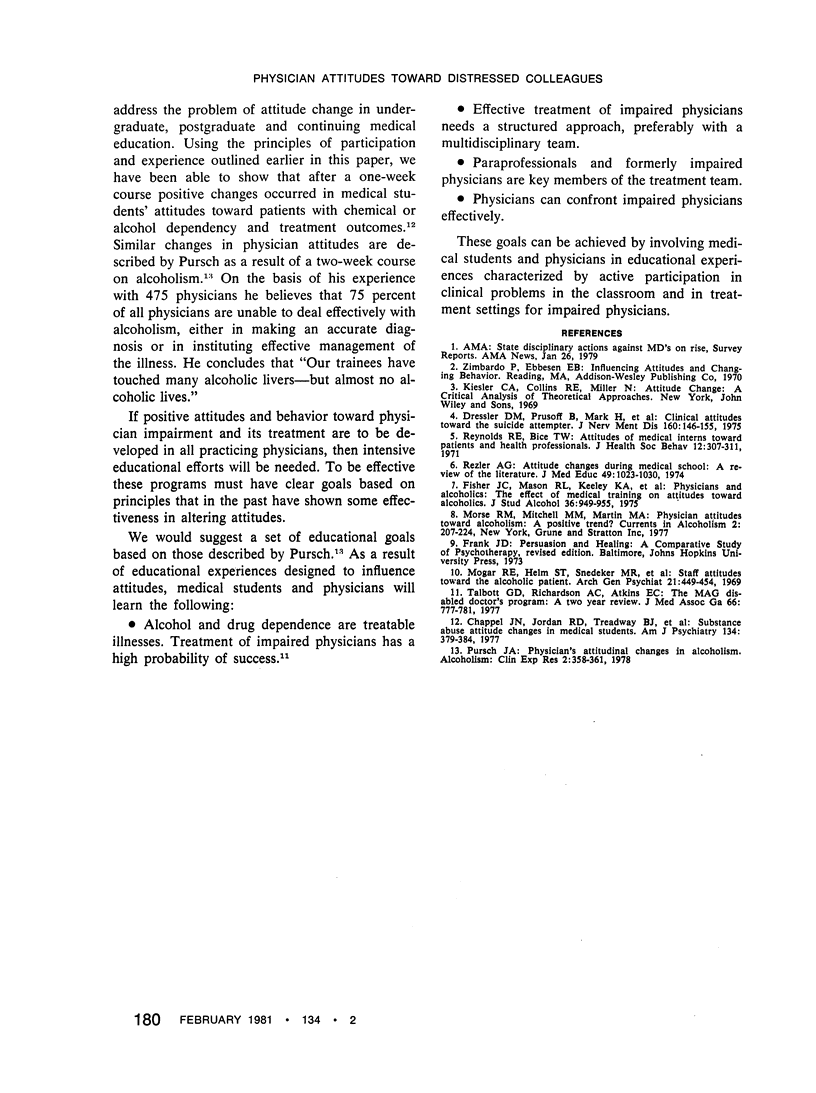
Selected References
These references are in PubMed. This may not be the complete list of references from this article.
- Chappel J. N., Jordan R. D., Treadway B. J., Miller P. R. Substance abuse attitude changes in medical students. Am J Psychiatry. 1977 Apr;134(4):379–384. doi: 10.1176/ajp.134.4.379. [DOI] [PubMed] [Google Scholar]
- Dressler D. M., Prusoff B., Mark H., Shapiro D. Clinician attitudes toward the suicide attempter. J Nerv Ment Dis. 1975 Feb;160(2-1):146–155. doi: 10.1097/00005053-197502000-00009. [DOI] [PubMed] [Google Scholar]
- Fisher J. C., Mason R. L., Keeley K. A., Fisher J. V. Physicians and alcoholics. The effect of medical training on attitudes toward alcoholics. J Stud Alcohol. 1975 Jul;36(7):949–955. doi: 10.15288/jsa.1975.36.949. [DOI] [PubMed] [Google Scholar]
- Mogar R. E., Helm S. T., Snedeker M. R., Snedeker M. H., Wilson W. M. Staff attitudes toward the alcoholic patient. Arch Gen Psychiatry. 1969 Oct;21(4):449–454. doi: 10.1001/archpsyc.1969.01740220065007. [DOI] [PubMed] [Google Scholar]
- Pursch J. A. Physicians' attitudinal changes in alcoholism. Alcohol Clin Exp Res. 1978 Oct;2(4):358–361. doi: 10.1111/j.1530-0277.1978.tb04743.x. [DOI] [PubMed] [Google Scholar]
- Reynolds R. E., Bice T. W. Attitudes of medical interns toward patients and health professionals. J Health Soc Behav. 1971 Dec;12(4):307–311. [PubMed] [Google Scholar]
- Rezler A. G. Attitude changes during medical school: a review of the literature. J Med Educ. 1974 Nov;49(11):1023–1030. doi: 10.1097/00001888-197411000-00001. [DOI] [PubMed] [Google Scholar]
- Talbott G. D., Richardson A. C., Jr, Atkins E. C. The MAG (Medical Association of Georgia) disabled doctor's program: a two-year review. J Med Assoc Ga. 1977 Oct;66(10):777–781. [PubMed] [Google Scholar]


